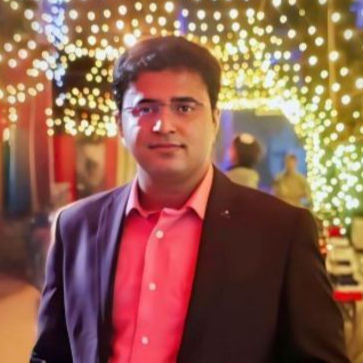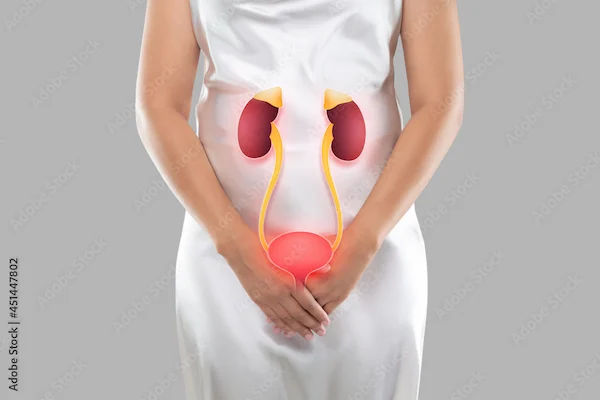Extreme Fatigue After Hysterectomy
Learn why extreme fatigue after hysterectomy is common and how to manage it effectively. Discover expert tips for recovery, boosting energy, and regaining strength post-surgery.

Written by Dr. Dhankecha Mayank Dineshbhai
Reviewed by Dr. Md Yusuf Shareef MBBS
Last updated on 13th Jan, 2026

Introduction
A hysterectomy, a surgical procedure to remove the uterus, can be a life-changing decision for many women. While it often helps relieve chronic pain, heavy bleeding, or other medical conditions, recovery can sometimes bring unexpected challenges. One common issue women face after a hysterectomy is extreme fatigue. If you’re feeling unusually tired even weeks after surgery, you’re not alone. This article will help you understand why fatigue happens, how long it might last, and what you can do to regain your energy safely.
Why Does Extreme Fatigue Happen After Hysterectomy?
Fatigue after a hysterectomy is completely normal and can be caused by several factors:
1. Surgical Stress on the Body: A hysterectomy is a major surgery, and your body uses a lot of energy to heal. Even if you feel fine externally, internal tissues and muscles need time to recover.
2. Anaesthesia Effects: General anaesthesia can leave you feeling groggy and sluggish for days or even weeks after surgery.
3. Hormonal Changes: If your ovaries were removed (oophorectomy), your body may experience sudden menopause, leading to fatigue, hot flashes, and mood swings.
4. Blood Loss: Some blood loss during surgery can contribute to temporary anaemia (low red blood cells), making you feel weak and exhausted.
5. Emotional and Mental Stress: Surgery can be emotionally draining. Anxiety, depression, or adjusting to life post-hysterectomy may also contribute to fatigue.
How Long Does Fatigue Last After Hysterectomy?
Recovery varies for everyone, but here’s a general timeline:
First 2 Weeks: Extreme tiredness is very common. You may need frequent naps and feel exhausted after simple activities.
3-6 Weeks: Energy levels start improving, but you may still tire easily.
6-12 Weeks: Most women notice significant improvement, but some may experience lingering fatigue if they overexert themselves.
Beyond 3 Months: If fatigue persists, consult your doctor to rule out anaemia, thyroid issues, or other underlying conditions.
Consult Top Specialists for Personalised Tips
Tips to Manage Fatigue and Boost Recovery
Tips to manage fatigue and boost recovery are:
1. Prioritise Rest
Listen to your body. Sleep when you feel tired.
Short naps (20-30 minutes) can help without disrupting nighttime sleep.
2. Eat a Nutrient-Rich Diet
Iron-rich foods (spinach, lentils, lean meats) help combat anaemia.
Protein (eggs, yoghurt, beans) supports tissue repair.
Hydration (water, herbal teas) prevents dehydration-related fatigue.
3. Gentle Movement Helps
Light walking (as approved by your doctor) improves circulation and energy.
Avoid heavy lifting or strenuous exercise until fully healed.
4. Manage Stress and Emotions
Practise relaxation techniques (deep breathing, meditation).
Talk to friends, family, or a counsellor if you feel overwhelmed.
5. Hormone Support (If Needed)
If menopause symptoms worsen fatigue, discuss hormone replacement therapy (HRT) with your doctor.
6. Avoid Overexertion
Don’t rush back to work or chores. Give yourself time to heal fully.
When to See a Doctor?
While fatigue is normal, consult your doctor if:
Fatigue lasts beyond 3 months.
You experience dizziness, rapid heartbeat, or extreme weakness (possible anaemia).
You have signs of infection (fever, unusual pain, or discharge).
If you’re concerned about prolonged fatigue, consider booking a consultation with a specialist through Apollo 24|7 for personalised advice.
Conclusion
Recovering from a hysterectomy takes time, and fatigue is a natural part of the healing process. Be patient with yourself, follow your doctor’s advice, and make self-care a priority. With proper rest, nutrition, and gradual activity, your energy levels will improve. If you’re struggling, remember, you’re not alone. Reach out to your healthcare provider for support, and take each day one step at a time.
Consult Top Obstetrics and Gynaecology Surgeon
Consult Top Specialists for Personalised Tips

Dr. Abhishek Daga
Obstetrician and Gynaecologist
20 Years • MBBS, MS (Obstetrics & Gynaecology)
Kolkata
Gynae Care Fertility Centre, Kolkata
(150+ Patients)

Dr Divya G
Obstetrician and Gynaecologist
13 Years • MBBS, MS (OG) ,MRCOG( U.K),FMAS
Chennai
Apollo Medical Centre Kotturpuram, Chennai

Dr. Vineet Mishra
Infertility Specialist
36 Years • MD, Phd, DSc
Ahmedabad
Apollo Hospitals - Gandhinagar, Ahmedabad, Ahmedabad

Dr. Shruti I
Obstetrician and Gynaecologist
7 Years • MBBS, MS (OBSTETRICS & GYNAECOLOGY)
Bangalore
Apollo Clinic Bellandur, Bangalore

Dr. Debajyoti Goswami
Obstetrician and Gynaecologist
10 Years • MBBS,D.G.O(DNB),Adv. Infertility Tech.(AIIMS),Fellowship in Diabetes(U.K),Comprehensive Abortion Care(Govt. Of W.B), Certificate in Clinical Embryology(AIIMS, BHUBANESWAR)
Bankura
D.G Clinic, Bankura
(25+ Patients)
Consult Top Obstetrics and Gynaecology Surgeon

Dr. Abhishek Daga
Obstetrician and Gynaecologist
20 Years • MBBS, MS (Obstetrics & Gynaecology)
Kolkata
Gynae Care Fertility Centre, Kolkata
(150+ Patients)

Dr Divya G
Obstetrician and Gynaecologist
13 Years • MBBS, MS (OG) ,MRCOG( U.K),FMAS
Chennai
Apollo Medical Centre Kotturpuram, Chennai

Dr. Vineet Mishra
Infertility Specialist
36 Years • MD, Phd, DSc
Ahmedabad
Apollo Hospitals - Gandhinagar, Ahmedabad, Ahmedabad

Dr. Shruti I
Obstetrician and Gynaecologist
7 Years • MBBS, MS (OBSTETRICS & GYNAECOLOGY)
Bangalore
Apollo Clinic Bellandur, Bangalore

Dr. Debajyoti Goswami
Obstetrician and Gynaecologist
10 Years • MBBS,D.G.O(DNB),Adv. Infertility Tech.(AIIMS),Fellowship in Diabetes(U.K),Comprehensive Abortion Care(Govt. Of W.B), Certificate in Clinical Embryology(AIIMS, BHUBANESWAR)
Bankura
D.G Clinic, Bankura
(25+ Patients)




.webp)